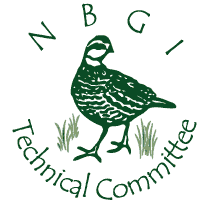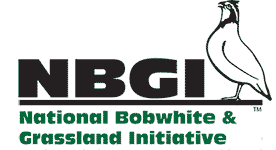The Southeastern Association of Fish & Wildlife Agencies (SEAFWA) has voted unanimously to endorse member states’ fully funding the core operations of the National Bobwhite Conservation Initiative (NBCI) for an initial three-year period. This non-binding resolution paves the way for the states to build their national bobwhite restoration initiative to the full strength originally envisioned, while the fledgling Bobwhite Foundation attracts donors and eventually matures into the ability to fund the 25-state effort.
SEAFWA’s primary membership is the state wildlife management agencies of Alabama, Arkansas, Florida, Georgia, Kentucky, Louisiana, Mississippi, Missouri, North Carolina, Oklahoma, South Carolina, Tennessee, Texas, Virginia, and West Virginia, and SEAFWA is the entity that originally launched the cooperative multi-state approach to restore wild bobwhite quail populations. Two other regional associations of state wildlife agencies – the Northeastern and Midwest – also endorse the NBCI, and several of their states actively participate.
NBCI Management Board Chairman and executive director of the Virginia Department of Game & Inland Fisheries, Bob Duncan, said support for fully funding the initiative by state wildlife management agencies is appropriate because the bobwhite is a game bird for which the states have legal responsibility, the NBCI is an initiative “by the states for the states,” quail conservation is beneficial to a variety of other priority species in decline and NBCI staff can be most effective when concentrating on bobwhite conservation rather than fundraising.
“Unified, elevated support of the NBCI by the states also will inspire confidence in potential donors to the Bobwhite Foundation,” said Duncan.
To date, NBCI member states have chipped in to pay for the director position while the rest of the NBCI capacity is supported by short-term grants, such as from the National Fish and Wildlife Foundation, the U.S. Fish and Wildlife Service and the Park Cities Quail chapter of the Texas Quail Coalition.
“The time is right for the states to step up en mass and raise their NBCI support to a higher level,” Duncan said. “Such leadership by the bobwhite states would send a clear signal to their partners and sportsmen that bobwhite restoration is a top priority. NBCI’s small staff has made enormous strides at the national and regional levels to help states identify and deal with obstacles and opportunities in the bobwhite restoration effort. But bobwhites didn’t disappear overnight and they won’t reappear overnight.
“What NBCI staff is doing for bobwhites is what no state can do alone … keep the species in the national conservation dialogue, and continue to identify national and regional opportunities to restore wild populations and do so with the cumulative weight of 25 states. NBCI needs to spend more time on behalf of bobwhites and the states, and less time trying to find continued funding. We also need to be much more active in grasslands issues, in mine reclamation issues, and in building and maintaining the online tools and national bobwhite databases the states need,” said Duncan.
Headquartered at the University of Tennessee, NBCI is a project of the National Bobwhite Technical Committee (NBTC) to elevate bobwhite quail recovery from an individual state-by-state proposition to a range-wide, policy-level leadership endeavor. The committee is comprised of representatives of state fish and wildlife agencies, academic research institutions and non-governmental conservation organizations. Policy guidance is provided by the NBCI Management Board, with each state wildlife agency director represented. NBCI is funded by the National Fish & Wildlife Foundation, two dozen state wildlife management agencies, the Association of Fish and Wildlife Agencies, Southern Company and the Park Cities Chapter of the Texas Quail Coalition.

